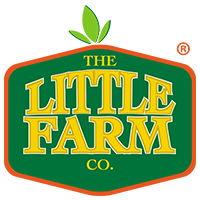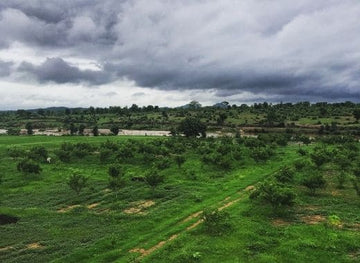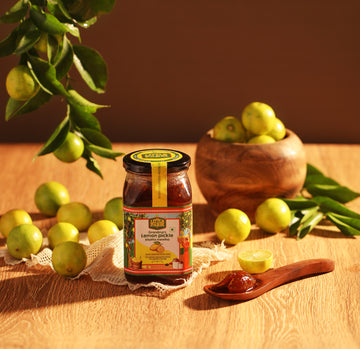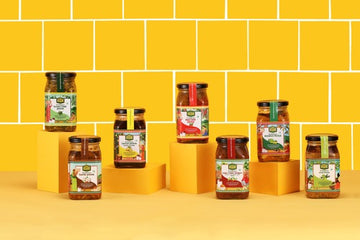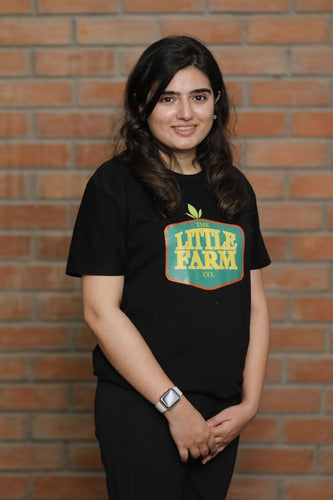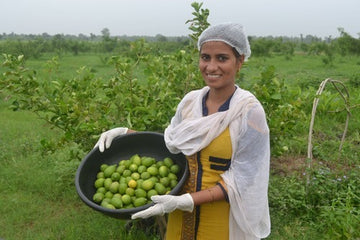Most people today are concerned about being healthy, saving the environment, encouraging sustainable practices and this rising level of awareness, is so good to see. Children are being taught in schools how to conserve resources, how to give up polluting habits and these too are good indicators of a possible cleaner and healthier future IF the momentum thus started gains enough traction.

One of the main areas to help achieve a lot of things stated above is today called organic farming and I personally feel that the more information that the general public has the more informed decision they will be able to make on this important trend for a healthier and sustainable living.
On the topic of ORGANIC FARMING most people I meet think that crops grown without the use of chemicals, pesticides and fertilizers are Organic. Add to that is the belief that crops grown using cow dung are organic. There is no distinction if the dung is of a young cow or an old cow, whether the dung belongs to a female cow or a male bull and I guess that is probably where the phase BULLSHIT started from.
Organic farming is mainly about maintaining good soil Health – which is what our Prime Minister has been harping on “THE SOIL HEALTH CARD”
Think of the Soil as the Mother and seed as the father, if both are health then even the babies born will generally be healthy but if either of them has a genetic disorder the chances are that the child born out of this union will have that disorder too. (The right seed)
After birth comes nurturing, what are the right thing to feed the baby to ensure it has proper growth and comes out to be a healthy individual. These are the practices that lead to production of ORGANIC PRODUCE. (Fertilization, mineralization, clean water etc)
There are 5 areas that I will cover in this blog that are essential for organic farming and then you will be able to judge whether the product in front of you is organic or not and what are the right questions to ask the producers/seller to be able to determine if good and sustainable organic practices are being followed.
1) Organic farming is all about maintaining good soil health (without the use of any synthetic inputs) and by using practices such as crop rotation, mulching, green manuring, use of organic matter for fertilization such as decomposed cow dung, compost etc
We need to maintain the physical fertility of the soil at an optimum level which ensures there is sufficient organic matter in the soil.
We also need to maintain the chemical fertility of the soil by ensuring proper Mineralization of the soil and during soil testing if any deficiencies are detected then these can be corrected by adding crop nutrients like Nitrogen, Phosphorus, Potassium, Calcium Magnesium, Zinc, Copper etc.
Lastly we also need to maintain the biological fertility of the soil which involves different organisms in the soil that helps in the growth of the plant directly, like symbioses with roots module bacteria and mycorrhizal fungi. Here the earthworms too play a major role but persistent use of synthetic pesticides and weedicides kills this underground flora and fauna which is so essential for the right nutrients to reach the maturing fruits and vegetables.
In case cow-dung is used for fertilization then we need to be sure that the cow dung is at least 1-2 years old and properly decomposed. In case the cow dung is fresh it may then contain harmful bacteria called E.coli which can create severe intestinal challenges in humans.
2) Clean water. In case the water source used for irrigating the fields contain contaminants like heavy metals or industrial affluent then again it renders the land unfit for organic farming. Today in many places in India the contaminants have reached the ground water and even if the farmer is using tube wells to irrigate his field the end crop would be contaminated.
3) Clean Air. In case the farms are in areas which have heavy vehicular or industrial air pollution then again it is nearly impossible to grow good organic produce. Air borne pollution eventually settles down on the land thus spoiling the quality of the land as this air pollution carries harmful particles that are mostly synthetic in nature.
4) Good Neighbors. In case your neighboring farmers are using synthetic fertilizers, weedicides and pesticides etc then you need to create physical barriers to prevent these synthetic inputs from seeping into your land. With all best efforts these air borne synthetic inputs are hard to stop from affecting your crop.
5) Traditional(Desi) seeds. For organic farming it is desirable to use Traditional seeds. Traditional seeds are also called “Heirloom seeds” and are seeds that farmers have been using for generation. Farmers save seeds selectively after seeing the growth of individual plants (survival of the fittest). This is an old tradition and is and needs to be continued.
Whereas earlier farmers used to save and share their seeds, today they depend wholly upon seed companies for their requirements. Traditional seeds are more suitable to a particular region or situation than any hybrid variety.
There are a number of reasons why it makes sense to use traditional seeds. Compared to hybrid seeds, they are hardy, pest-resistant, withstand unfavorable conditions in the area of their origin, require less water and nutritional inputs, fit in better in the organic method of farming and may even have special characteristics such as nutrition, fragrance or colour,
Hybrid seeds on the other hand are developed for very specific situations and have precise water and nutritional requirements, generally on the higher side. They are also more prone to pest attacks and diseases. Besides being costlier, hybrids cannot be saved or shared with any benefit to the farmers.
The traditional seeds are fast disappearing and once lost cannot be revived. In the western world they have developed huge seed banks where they are saving every indigenous traditional seed species that they have. Till that is not done in India the only way forward is to encourage the organic farmers who are producing healthy fruits and vegetables for you but more importantly saving the traditional seeds which have not been lost so far.
